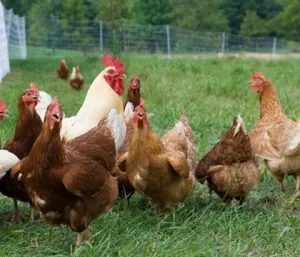Blog
Science Contradicts the Humane Society of the United States on Salmonella and “Cage-Free” Eggs
Science Contradicts the Humane Society of the United States on Salmonella and “Cage-Free” Eggs
Animal Rights Group Makes Reckless Claims and Ignores Inconvenient Research

Washington, DC – Despite recent claims to the contrary from the Humane Society of the United States (HSUS), recent poultry science does not support the conclusion that expensive “cage-free” egg production lowers the public-health risk from Salmonella, the nonprofit Center for Consumer Freedom (CCF) said today. HSUS recently published a list of what it claimed were “the nine studies published in the last five years comparing Salmonella rates in cage and cage-free egg operations,” and concluded that cage-free eggs were safer to eat. But the animal rights group intentionally mischaracterized the results of some of those studies, and ignored several others that don’t suit its agenda.
A 2005 study cited by HSUS disagrees with the group’s claims from the very beginning, concluding that “the system with the lowest chance of infection was the cage system with wet manure.” And a 2008 study—again, cited by HSUS—concluded “no significant differences could be found in prevalence of Salmonella between laying hens reared in conventional and enriched cages and [free-range] aviary.”
Many of the other studies cited by HSUS caution that differences between cage and cage-free chickens may be due to factors other than the housing system, such as flock size or vaccination rates. By ignoring the scientific conclusions that it doesn’t like, HSUS is recklessly misleading consumers and the media.
Other studies, ignored by HSUS entirely, tell a story that HSUS is not eager to promote. One 2004 study, for example, conducted by the British government, sampled nearly 5,000 eggs and found “no statistically significant difference … between the prevalence of Salmonella contamination in samples from different egg production types.”
“It doesn’t take a Ph.D. to spot the sleight-of-hand coming from the nation’s slickest animal rights group,” said CCF Director of Research David Martosko. “HSUS has a clear agenda, and it’s pushing it full-bore even though science doesn’t agree.”
For more information, visit www.HumaneWatch.org. To arrange an interview, call Allison Miller at 202-463-7112
The Center for Consumer Freedom is a nonprofit watchdog organization that informs the public about the activities of tax-exempt activist groups. It is supported
















